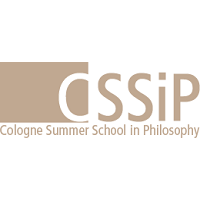Opening
Program
You can download the program of the Cologne Summer School in Philosophy 2025 by clicking here (updated 11.05.2025).
Monday – July 21
Tuesday – July 22
-
Comment: The Value of Epistemic Trust in Public Experts – ALEXIS MORIN-MARTEL (MCGILL)
11:00h – 12:00h (CEST)
-
Comment: Is It Wrong Not to Defer to Expert Consensus on Climate Change? – AKE WAHLBERG (SANKT GEORGEN)
13:30h – 14:30h (CEST)
-
Lecture II: Conspiracy Theories – ALEX WORSNIP
14:45h – 16:45h (CEST)
-
Comment: (Rational) Deference to Groups? The Case of Folk-Lore – TIL EYINCK (COLOGNE)
17:00h – 18:00h (CEST)
Wednesday – August 21 [Day Off]
Thursday – July 24
Friday – July 25
-
Comment: Truth-Oriented Rationalist Pragmatism – YANNIS ANAGNOSTOUDIS (KU LEUVEN)
10:00h – 11:00h (CEST)
-
Comment: Mission Impossible: Clearing Space for Motivated Reasoning within Doxastic Deliberation – ELEANNA TZERAKI (KU LEUVEN)
11:15h – 12:15h (CEST)
-
Lecture V: Suspiciously Convenient Beliefs – ALEX WORSNIP
14:00h – 16:00h (CEST)

